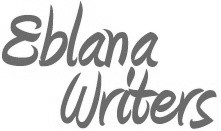Writing for Radio
In his book, Writing for Radio, Shaun MacLoughlin – script editor and drama director for over 30 years – says that if you remember only two things about writing for radio, they should be:
Author Rosemary Horstmann, also with a book called Writing for Radio, issues the following guidelines:
Your listener is obliged to take in information in the order they receive it. “If they do not immediately understand what has been said, they cannot look back to the beginning of the paragraph, or reread the previous page… For most listeners, the first hearing is the last, and anything misunderstood or missed is gone forever.”
MacLoughlin, among others, points out that you must captivate your listener from the very beginning – it is all too easy to change channel or switch off.
If you are writing a radio play, know where to start it. As an editor, MacLoughlin has read thousands of plays over the years. He says that on average, page 27 of a 60 page script is where he usually finds himself thinking “Ah, this is interesting, at last. This is what the play is about… where the story really begins.” This lead-in is essentially scaffolding which – if left in place – mars an otherwise sound construction. It is quite likely that long before page 27 gets an airing, the script will be drowned out by the snap of off buttons being depressed all over the country.
You may like to address the ending early on…
…Playwright, Peter Tinniswood says that if he knows the end of the play when he is a quarter way through, he knows it’s going to work for him.
On the other hand, you may not…
…Colin Hayden Evans says that knowing the ending in advance would be like the tail wagging the dog and that often his characters take on a life of their own and dictate how events proceed.
Don’t forget about sound effects – not only music and noises, but also acoustics which can help to set your scene – are you bringing your listener into a cathedral? A field? A graveyard at night?
RTE gives guidelines and examples on writing for radio, as does the BBC Writers Room. Remember, you are not confined to writing plays and short stories. Sunday Miscellany provides a forum for anecdotes and poetry, and don’t rule out documentary material. There is a lot of airtime out there waiting for you to fill it.
Meanwhile, here’s the entry form for the 2012 competition. The very best of luck!
